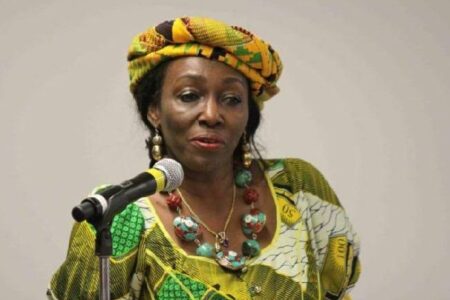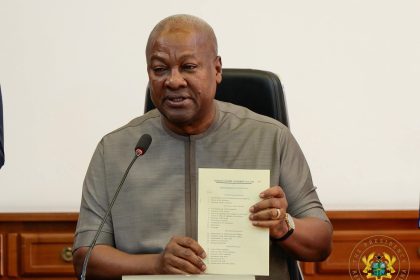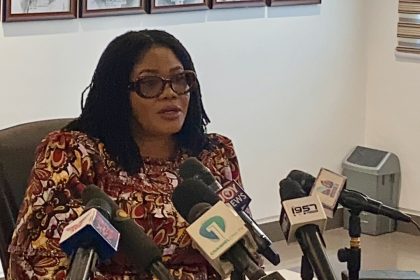Economic policy analyst Senyo Hosi has described the late former First Lady, Nana Konadu Agyeman-Rawlings, as “the Yaa Asantewaa of our time,” lauding her for transforming the role of women in Ghanaian society.
Speaking on Citi FM’s Big Issue following the announcement of the death of the former First Lady, Mr. Hosi said Mrs. Rawlings’ legacy and impact goes deeper into all aspects of Ghanaian social and political life and that legacy cannot be confined to her political affiliations.
“Her impact transcends her party,” he said. “The millions of women who benefited from her activism and advocacy were not painted in party colors.”
Mr. Hosi noted that Nana Konadu redefined what it meant to be a First Lady in Ghana. “She did not just follow the path of being a first lady. She carved it. She redefined it,” he said, contrasting her activism and visibility with that of her predecessors.
According to Hosi, Mrs. Rawlings “understood what political power could do, and she used it,” leveraging her position to push for legal and social reforms that changed lives, particularly the introduction of the Intestate Succession Law and her fierce advocacy for women’s and children’s rights.
Mr. Hosi credited Mrs. Rawlings for leading Ghana’s early feminist activism and for being instrumental in initiatives that advanced women’s education, health, and economic empowerment.
“If it wasn’t Nana Konadu, who knew about the Beijing Conference?” he asked, referring to the landmark 1995 United Nations women’s summit in China. “She became a symbol and an example of what a First Lady could do and could become.”
He argued that much of what is taken for granted today such as women’s education, leadership opportunities, and social mobility were products of Nana Konadu Agyeman-Rawlings’ activism.
“We’ve come from far,” he said. “It had to take people to stand in the gap and force a transformation in our cultural orientation to put women in their rightful place. And Nana Konadu was there. She did it.”
Mr. Hosi acknowledged that Mrs. Rawlings’ strong personality and outspoken nature sometimes attracted controversy. “She was not the type to stay silent or accept being ignored. She was not passive,” he said. “She loved to be in the center of the action, and that often rubbed people the wrong way.”
He likened her assertiveness to that of the legendary Ashanti warrior queen, Yaa Asantewaa, saying, “She was absolutely the Yaa Asantewaa of our time. And she did not just do it to exercise power irrationally. She impacted lives.”
Reflecting on her later years, Mr. Hosi said Mrs. Rawlings and her late husband, former President Jerry John Rawlings, struggled with the loss of political influence and the evolution of the ideals they once championed.
“They were struggling with the death, in their opinion, of the ideals of a political movement and orientation that they lived and died for,” he observed. Still, Mr. Hosi maintained that Mrs. Rawlings’ candor and conviction defined her. “She was never fake. She told you what she thought. You didn’t need to agree with her, but you knew where she stood,” he said.
Mr. Hosi said Ghanaians must remember Nana Konadu not for her political controversies but for her courage and the transformation she inspired. “She made relevance count,” he said. “She used her influence to shape time and her legacy will remain a part of Ghana’s social and political story forever.”






